Advanced writers are invited to apply for our weeklong or weekend Lit Fest Master Workshops with visiting authors including Alexandre Philippe, Steve Almond, Lydia Millet, CAConrad, Jenny Offill, Emily Rapp Black, Min Jin Lee, Halley Feiffer, Leslie Jamison, Rachel Cusk, Terrance Hayes, Charles D'Ambrosio, Robin Black, Maggie Shipstead, and Benjamin Alire Sáenz.
Each weeklong workshop meets five times, Monday through Friday, 9:00 to 11:45 AM, and includes a one-on-one meeting with the instructor. The weekend workshops meet twice, Saturday and Sunday, from 8:30 AM to 12:30 PM, each day. Master Workshops are limited to 10 participants. See the course descriptions below for more details.
Master Workshop applications open on January 1, and the priority deadline is March 15, 2018. Though the priority deadline has passed, we're still accepting applications for the Master Screenwriting workshop with Alexandre Philippe on a rolling basis. Apply here. (General registration will open on April 2nd.)
For tuition and fellowship information, click here. Questions? Check out our FAQs.
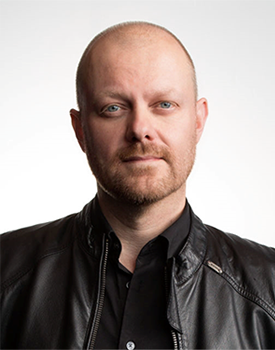
Master Dramatic Writing: The First Ten Pages with Alexandre O. Philippe
This workshop will focus on your overall story and making the first ten pages of your script (screenplay, play, pilot, or documentary) most effective and reflective of that whole. We’ll focus on the importance of establishing a tone, honing your voice, and creating killer characters. We'll talk structure, story development, and emotional truth, but we'll also discuss the art of pitching your script, and how to know when it's time to start writing something new. You'll leave this intensive with some strategies for revision and a better sense of what you as a writer uniquely bring to the table. Playwrights are welcome to apply. Accepted participants will submit their treatments and the first ten pages of their scripts by noon (MST) on May 2. (Saturday and Sunday, June 2-3, 8:30 AM to 12:30 PM)
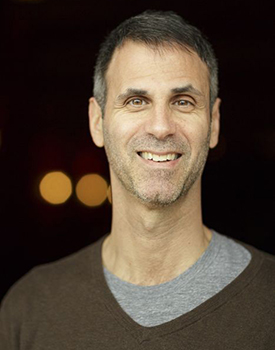
Master Short Prose: The BS Detector with Steve Almond
Writing is decision making, nothing more and nothing less. What word? Where to place the comma? How to shape the paragraph? Join Steve Almond for a workshop focused on improving the decisions you make in your writing. By looking critically and carefully at other people’s work, you’ll walk away with a better sense of how to improve your own. The idea is not to slow your rate of composition via compulsive revision, but to instead make better decisions in the first place and to recognize quickly when you haven’t. Accepted participants will submit short pieces of up to 4,000 words by noon (MST) on May 2 to be reviewed during the intensive. (Saturday and Sunday, June 2-3, 8:30 AM to 12:30 PM)
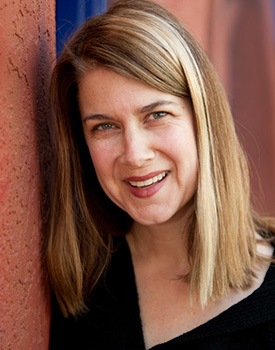
Master Fiction Workshop: The Charismatic Narrator with Lydia Millet
What is charisma, on the page? What does it take to make voice compelling? In this workshop, we'll take 10-15 pages of our fiction sample (a short story or novel beginning) and rewrite and revise it over the five days of the class. We’ll work on honing the piece’s voice so that it fascinates and pulls the reader in, playing with (un)reliability, emotion, humor, blind spots, and other facets of character as well as with details of vocabulary and idiom. Be prepared to study your own language—and the language of other students—closely to find out what works and what doesn’t work to make your narrative coherent and lucid. We’ll focus on making each writer’s voice as unique and compelling as it can be. Accepted participants will submit up to 15 pages by noon (MST) on May 4 and will have the opportunity to schedule a meeting with Millet during the week of class. (Monday through Friday, June 4-8, 9:00 to 11:45 AM)
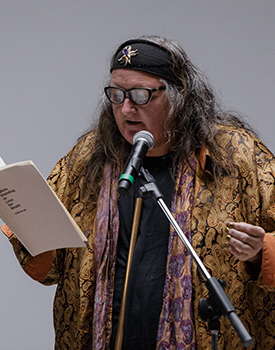
Master Poetry Workshop: (Soma)tic Poetry Rituals & The Strength of Poetry with CAConrad
(Soma)tic poetics investigates that seemingly infinite space between body and spirit by using the world around us and deliberate, sustained concentration. In this generative and critique-based workshop, we’ll use (soma)tic poetry rituals to create a space of “extreme present” from which to look at our lives and how we fit into the world. Our rituals and their resulting poems will help us see the creative viability in everything around us and help us end our alienation from our planet and from one another. We’ll use this mentality of extreme openness to frame our feedback of each other’s work as we discuss the important role artists must play in the future health and happiness of our species. Please read this (Soma)tic Manifesto: http://bit.ly/2yYajhj. Accepted participants will submit up to four poems by noon (MST) on May 4 and will have the opportunity to schedule a meeting with CAConrad during the week of class. (Monday through Friday, June 4-8, 9:00 to 11:45 AM)
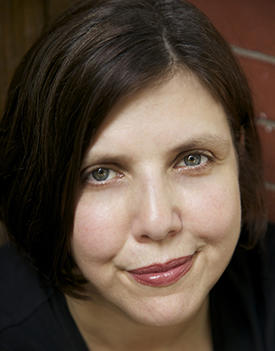
Master Fiction Workshop: Narrative Techniques for Prose with Jenny Offill
Narrative techniques can range from classic entry points, such as voice and character, to less conventional ones, like generative devices and fragmentary forms. Join acclaimed writer Jenny Offill in discussing successful techniques and how to apply them to your work. Participants will discuss a variety of short stories, novel excerpts, and lyric essays, using these pieces as a springboard into discussion of their own work. Accepted participants will submit up to 20 pages by noon (MST) on May 4 and will have the opportunity to schedule a meeting with Offill during the week of class. (Monday through Friday, June 4-8, 9:00 to 11:45 AM)
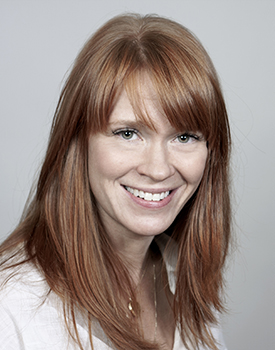
Master Nonfiction Workshop: When "It Happened to Me" Isn't Enough with Emily Rapp Black
In this workshop, we'll turn our critical attention to the work of our peers, exploring and discussing how to set our stories apart in a literary landscape increasingly saturated with memoir and other types of personal narrative. This is not about making your work salacious or pitching to the lowest common literary denominator; it's about organizing your thoughts, impressions, and stories into a compressed, tightly focused, and propulsive manuscript. It's about cutting what you spent weeks working on; it's about re-writing a scene 100 times until it fits within the piece just right. We'll read Colum McCann's 'Letters to a Young Writer' (required text) to help guide our discussions as well as critique the work of our peers. Accepted participants will submit up to 20 pages of literary memoir by noon (MST) on May 4 and will have the opportunity to schedule a meeting with Rapp Black during the week of class. (Monday through Friday, June 4-8, 9:00 to 11:45 AM)
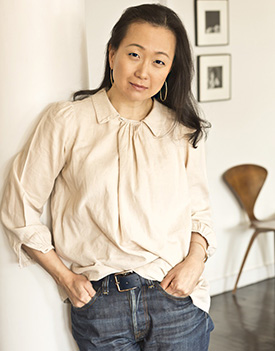
Master Fiction Workshop: Finding Your Theme(s) with Min Jin Lee
Nothing can be written overnight. Not really. So what will it take for you to stay with a story from its beginning, through its middle, and to its very, very end? It's crucial for each author to discover and admit her true themes. In this workshop, we'll ask the questions necessary to compel each author to stay the course from first draft to last revision. Exercises will comprise the first class, then we'll workshop the exercises and the submitted writings in the following classes. Accepted participants will submit up to 20 pages by noon (MST) on May 4 and will have the opportunity to schedule a meeting with Lee during the week of class. (Monday through Friday, June 4-8, 9:00 to 11:45 AM)
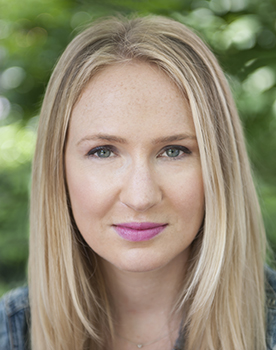
Master Dramatic Writing Workshop: The First Act, The One Act, or The Pilot with Halley Feiffer
*Important note: Daniel Goldfarb was originally scheduled to teach this course but, unfortunately, has had to cancel his Lit Fest visit. Fortunately, Halley Feiffer will be coming to Lit Fest in his place.* We know it as viewers: a TV show, film, or play has to get us early if it’s going to get us at all. Otherwise we just find something else that does. This hands-on workshop takes the first act of a full-length film or play (or full pilot script) and assesses the moving parts—character development, narrative propulsion, dialogue, structure, and more. The goal will be for writers to leave the week with specific ideas about how to hone their material and continue on with focus and energy. Meetings will include table reads, exercises, and discussions of the business of plays, film, and TV. Accepted participants will submit a first act or pilot by noon (MST) on May 4 and will have the opportunity to schedule a meeting with Feiffer during the week of class. (Monday through Friday, June 4-8, 9:00 to 11:45 AM)
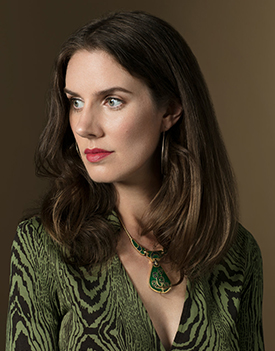
Master Nonfiction Workshop: Flash Memoir with Leslie Jamison
In this class, we’ll be thinking about the art of compression. How do we capture our infinite lives in finite frames? How do we curate and arrange what actually happened? How do we find the heat and core of what we've lived and felt? Find the mattering in the memory? If literary nonfiction is often misunderstood as straight exposure rather than crafted sculpture, we’ll be thinking about how compression exposes it as craft—distills the difficulties and possibilities of what it means to write from our lives. In just a few pages or paragraphs a mother can be raised from the grave or a treehouse burned to the ground; a wound can be re-opened, or a conflict can be understood in entirely new terms. We’ll be making “heat maps” of one another's submitted pieces, exploring the possibilities of these pieces alongside discussions of published essays and in-class exercises meant to generate new work. There’s an exhilaration to concision, and our conversations will explore this vein of electricity. Accepted participants will submit short pieces of up to 2,500 words by noon (MST) on May 9 to be reviewed during the intensive. (Saturday and Sunday, June 9-10, 8:30 AM to 12:30 PM)
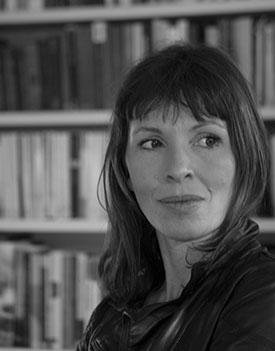
Master Prose Workshop: Gaining Objectivity with Rachel Cusk
*Important note: Sheila Heti was originally scheduled to teach this course but, unfortunately, has had to postpone her Lit Fest visit to another year. Fortunately, Rachel Cusk will be coming to Lit Fest in her place.*
The aim of this course will be to show you how to acquire power as a writer, through a better understanding of the role subjectivity—unconscious personal bias—plays in the writing process. We will consider the ethics of perception and their representation in language, the pursuit of objectivity as an artistic goal, and the study of structures of living as the template for structures of writing. Through writing tasks and exercises you will have the opportunity to gain greater conscious control of your creative work and to become more competent in representing both the self and the shared reality that is its context. Accepted participants will submit up to 20 pages by noon on May 11 and will have the opportunity to schedule an individual meeting with Cusk during the week. (Monday through Friday, June 11-15, 9:00 to 11:45 AM)
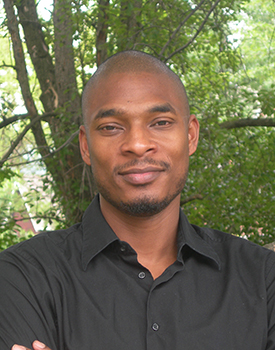
Master Poetry Workshop: Reading to Write with Terrance Hayes
This workshop will explore the ways “reading to write” can result in new poems and new revisions of stalled poems. During the week, we'll look at how an assortment of poems imitate and are in conversation with other poems and other forms (music, film, journalism, etc.) and generate our own inventive imitations in class. Accepted participants will submit up to four poems by noon (MST) on May 11 and will have the opportunity to schedule a meeting with Hayes during the week of class. (Monday through Friday, June 11-15, 9:00 to 11:45 AM)
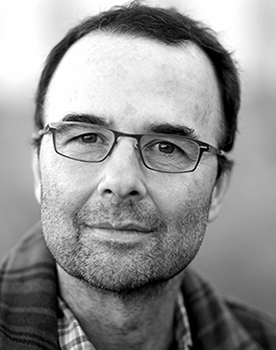
Master Nonfiction Workshop: Decision-Making and the Personal Essay with Charles D'Ambrosio
In this workshop, we’ll improvise our way across the week, shaping our conversations around the material you submit, taking our cues from the triumphs and troubles we encounter. I can’t say with any certainty in advance, but I kind of imagine we’ll talk about persona, voice, form and flow, confession and the implied audience, the anguish of writing anything that cuts close to the bone. How do you dramatize the self? It’s tough to write about your stubbed toe when the world’s full of people with their own toes and their own stubbed-toe stories. How do you make your private experience matter? Whatever comes our way, we’ll handle. It should be exciting. Accepted participants will submit up to 20 pages by noon (MST) on May 11 and will have the opportunity to schedule a meeting with D’Ambrosio during the week of class. (Monday through Friday, June 11-15, 9:00 to 11:45 AM)
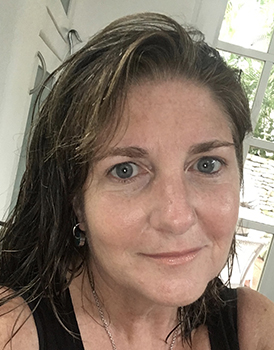
Master Short Fiction: A Nontraditional Workshop with Robin Black
In this workshop, instead of discussing participants’ stories individually, each session will be structured around particular points of craft. In the context of exploring these points, we'll examine their implications for each story or novel passage. Our points of focus will likely include beginnings and endings; choices of point of view and tense; creating and effectively using secondary characters; reading your own work for revision; etc. The final list of topics will ultimately be determined by the submissions themselves. This workshop’s subject-matter-based approach has the benefit of putting the emphasis on lessons that reach beyond an individual work, while removing the ego and the vulnerability of traditional workshops. The whole question of whether the group likes or doesn't like any given piece will be off the table. The goal is less to find a game plan for improving individual pieces—though that will almost certainly be a side benefit—than to deepen every participant’s understanding of a variety of craft issues. This workshop is recommended for both short fiction writers and novelists. Creative nonfiction writers are also welcome to apply. Accepted participants will submit up to 25 pages by noon (MST) on May 11 and will have the opportunity to schedule a meeting with Black during the week of class. (Monday through Friday, June 11-15, 9:00 to 11:45 AM)
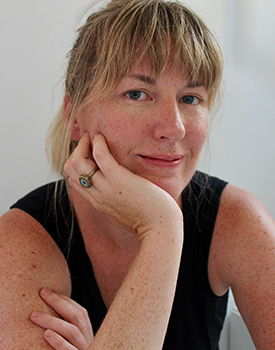
Master Fiction Workshop: The Narrative Voice with Maggie Shipstead
Tell a story. It sounds like a simple thing. But when you sit down to begin, you must first make a series of decisions. Who's doing the telling? And when? And why? And with what relationship to the truth? How much does the storyteller know? How much is purposefully left untold? Sometimes the perfect voice and point of view emerges right away; sometimes we must dig for it. We'll pick our fiction apart at the seams in search of insight into how to improve its construction, seeking both new rigor and new freedom in our storytelling. Accepted participants will submit up to 30 pages by noon (MST) on May 11 and will have the opportunity to schedule a meeting with Shipstead during the week of class. (Monday through Friday, June 11-15, 9:00 to 11:45 AM)
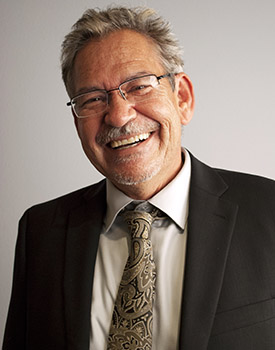
Master YA Fiction Workshop: Making Your Characters Believable with Benjamin Alire Sáenz
What makes your protagonist memorable? How do you write to develop your characters’ unique voices and ensure that they are believable to the YA reader? In this workshop, we’ll focus on developing your characters’ humanity by writing and celebrating the inconsistencies and confusion that mirror life. We’ll learn to connect the readers with the characters by focusing on internal monologue and first-person point of view. We’ll begin this workshop by developing our characters’ personas; fashioning them to evolve into believable characters your audience will connect with. Participants will focus on writing a character-driven story during the duration of the class. While the focus of the class is YA, other novelists are also welcome to apply. Accepted participants will submit up to 20 pages by noon (MST) on May 11 and will have the opportunity to schedule a meeting with Sáenz during the week of class. (Monday through Friday, June 11-15, 9:00 to 11:45 AM)
